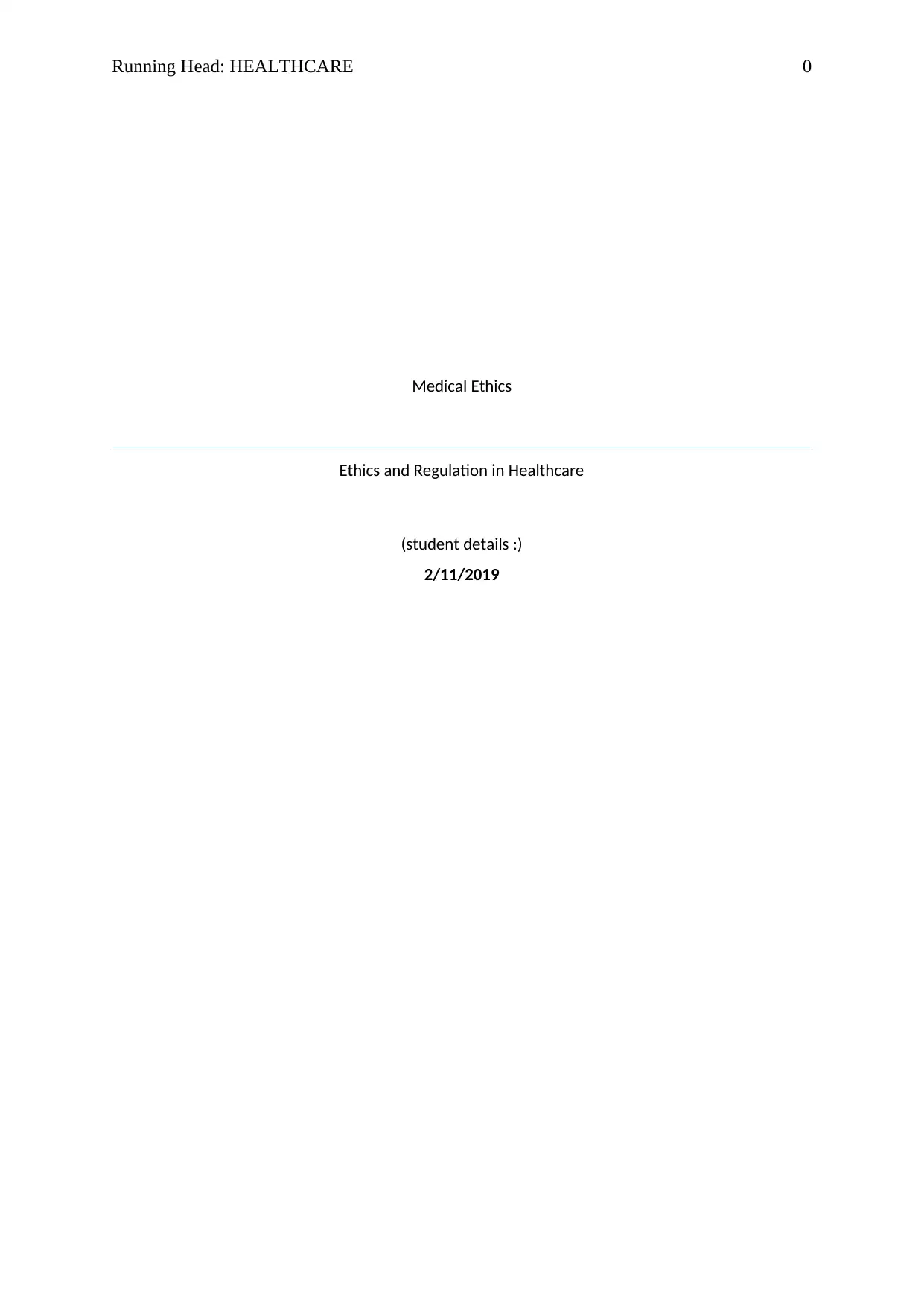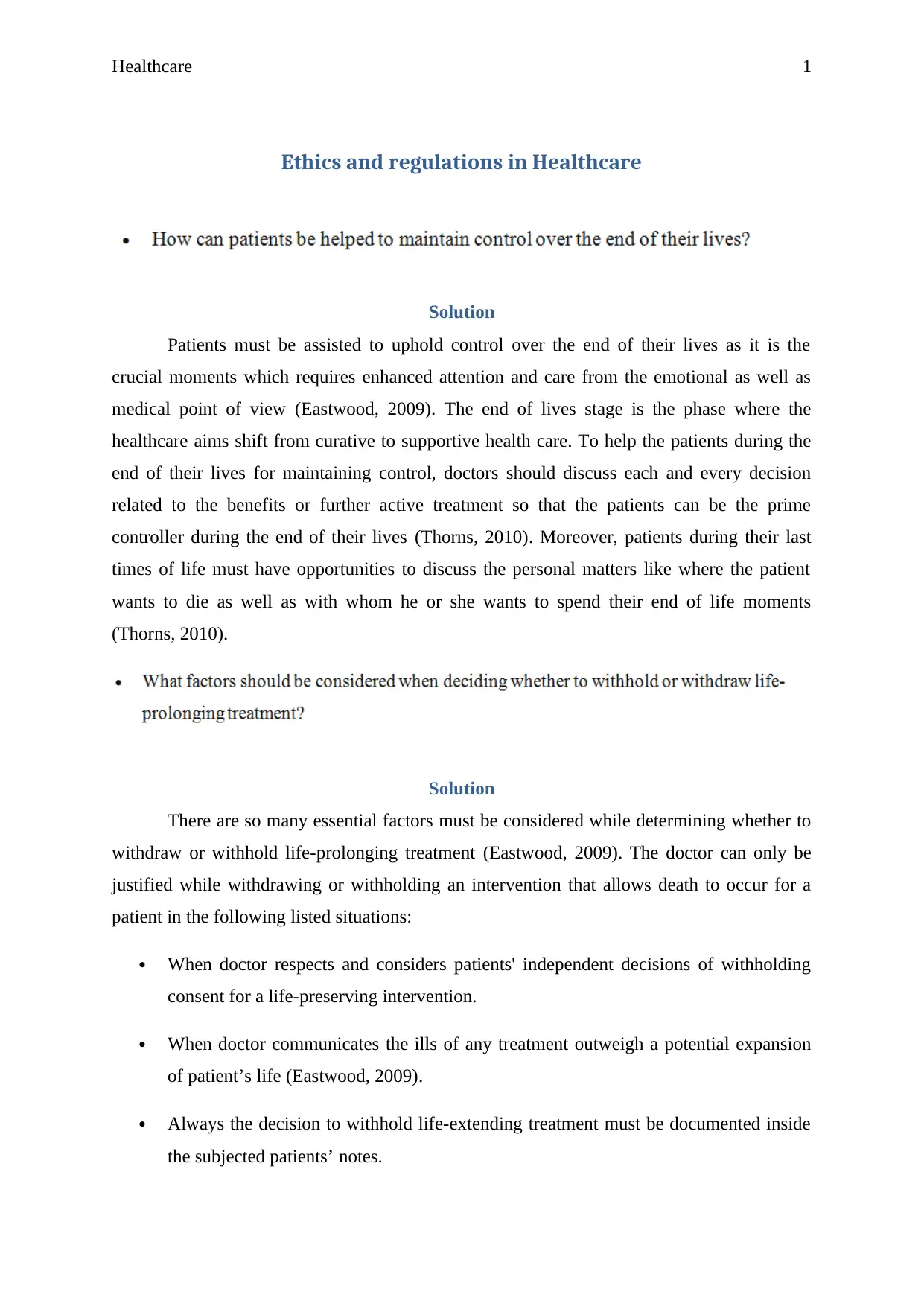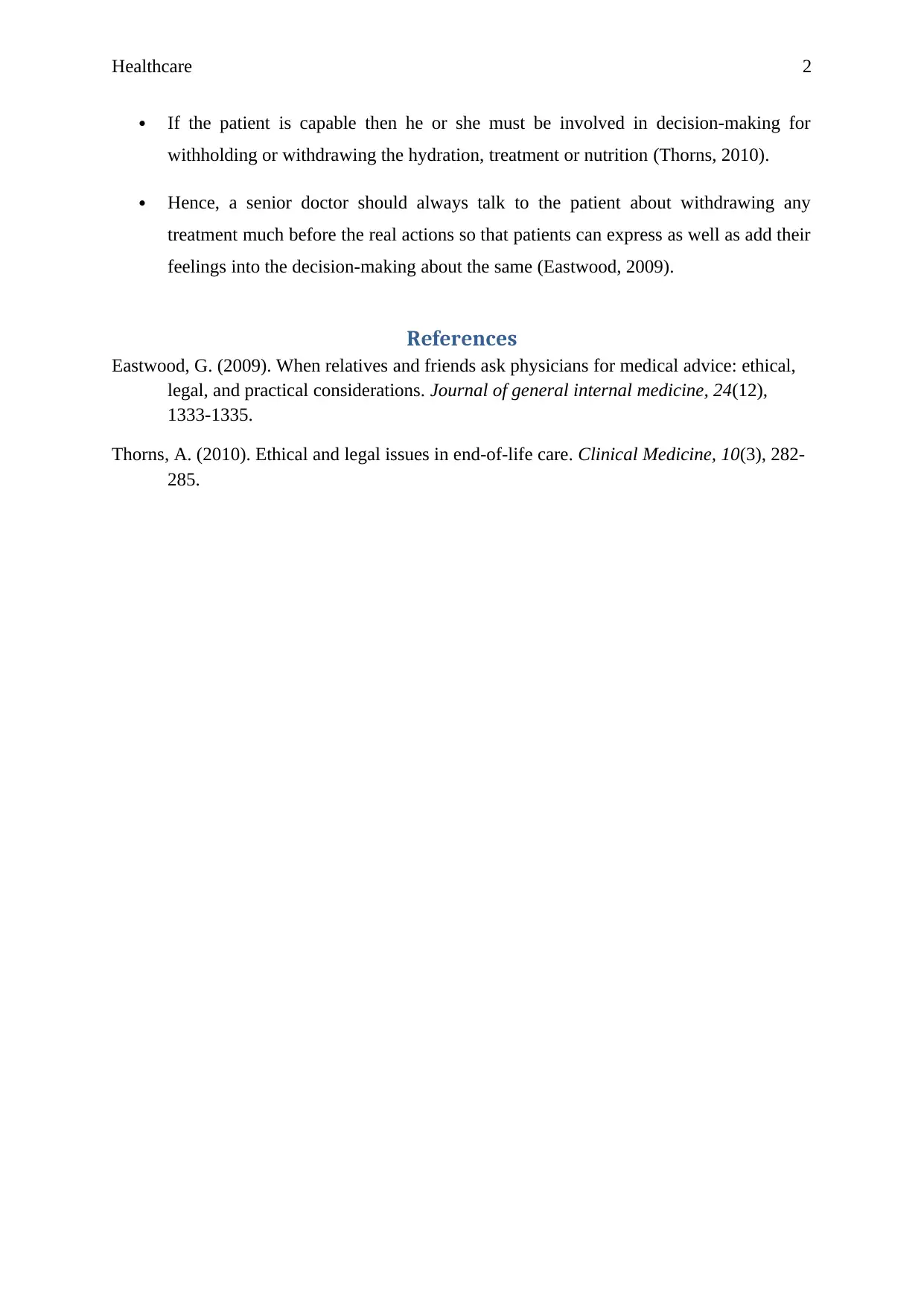Medical Ethics Assignment: End-of-Life Care and Patient Control
VerifiedAdded on 2023/04/21
|3
|436
|272
Homework Assignment
AI Summary
This assignment solution addresses key ethical considerations in end-of-life care, focusing on how patients can maintain control during this sensitive time. It examines the shift in healthcare goals from curative to supportive care and emphasizes the importance of open communication between doctors and patients regarding treatment decisions. The solution explores factors influencing decisions to withhold or withdraw life-prolonging treatment, emphasizing patient autonomy and the need for clear documentation. The assignment also references the BMA's Handbook of Ethics and Law to highlight the importance of compassion, honesty, and effective communication within the healthcare team. It underscores the need to respect patient wishes and provide support for both the patient and their loved ones during this difficult phase. The solution stresses the significance of ethical and legal considerations in end-of-life care to ensure patient dignity and privacy.
1 out of 3










![[object Object]](/_next/static/media/star-bottom.7253800d.svg)